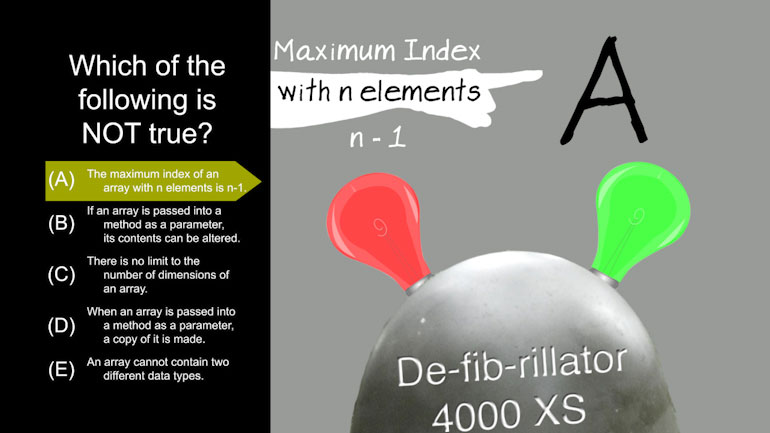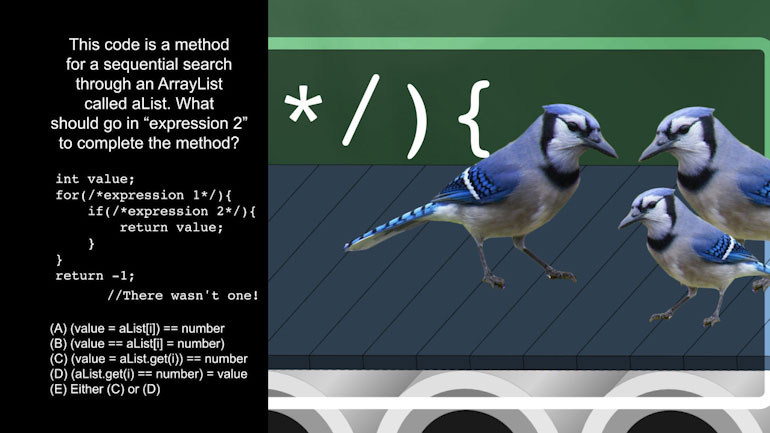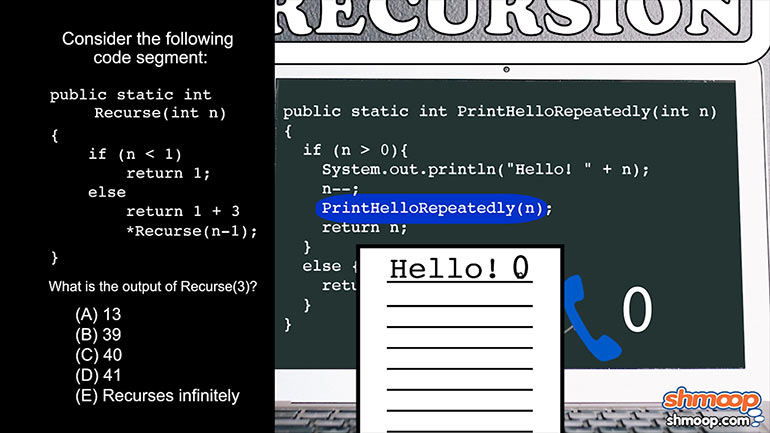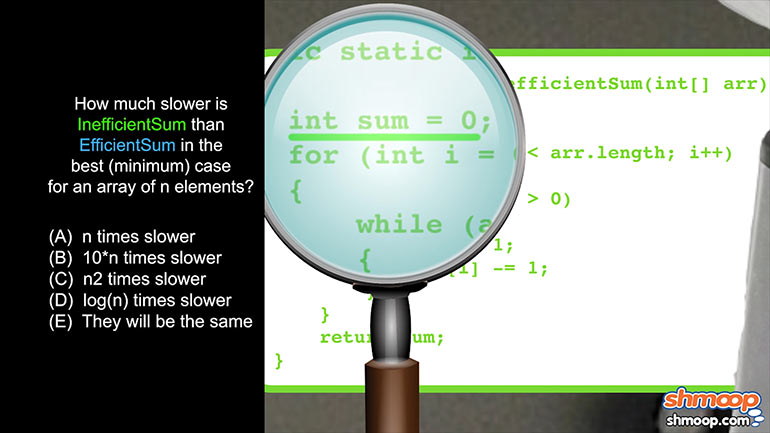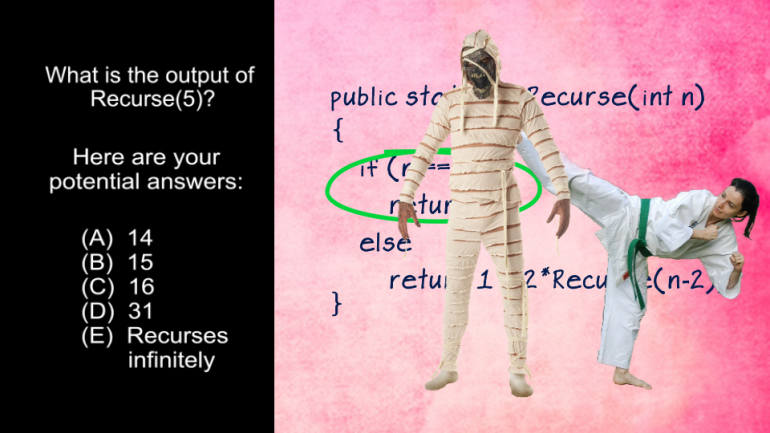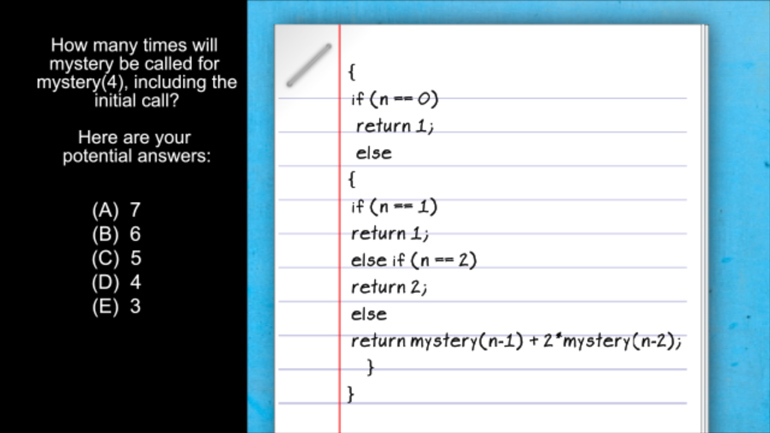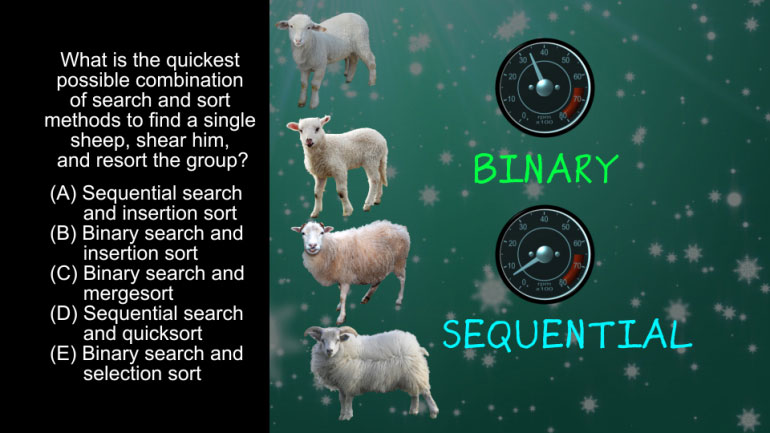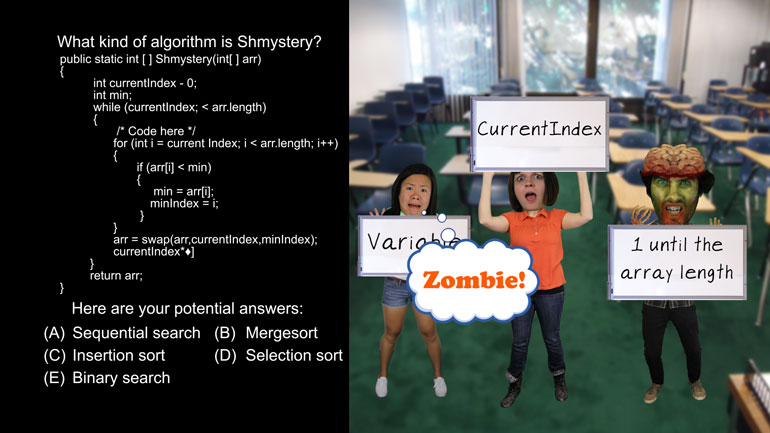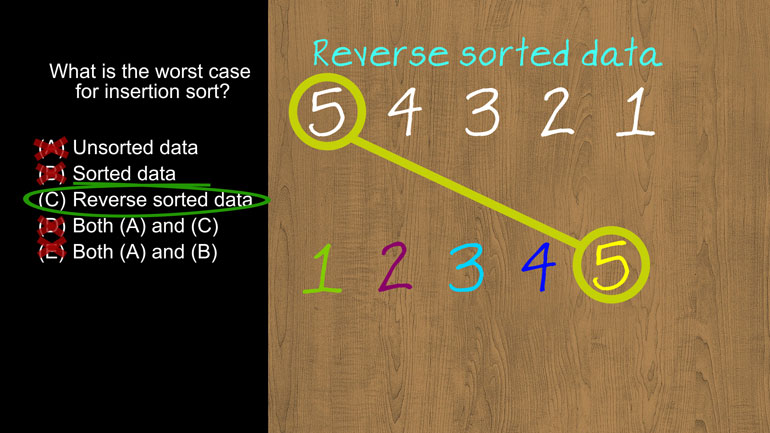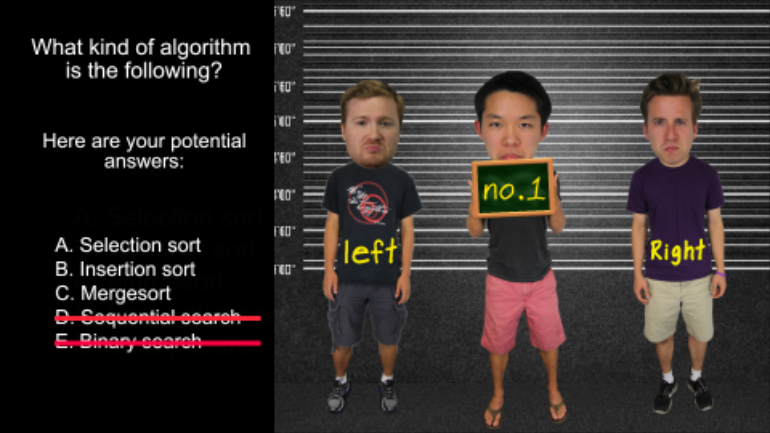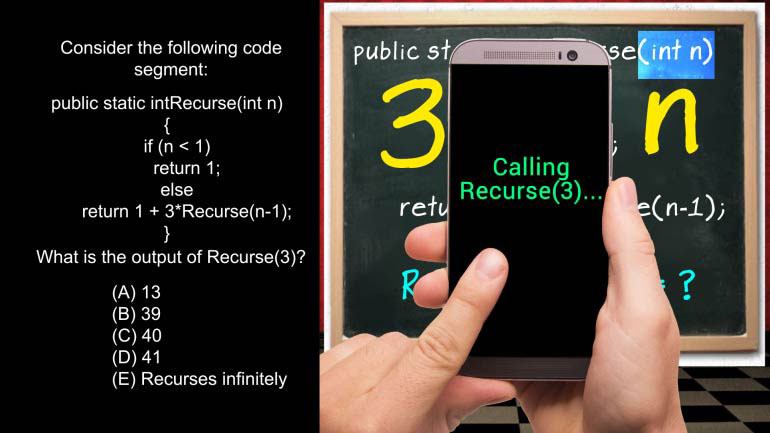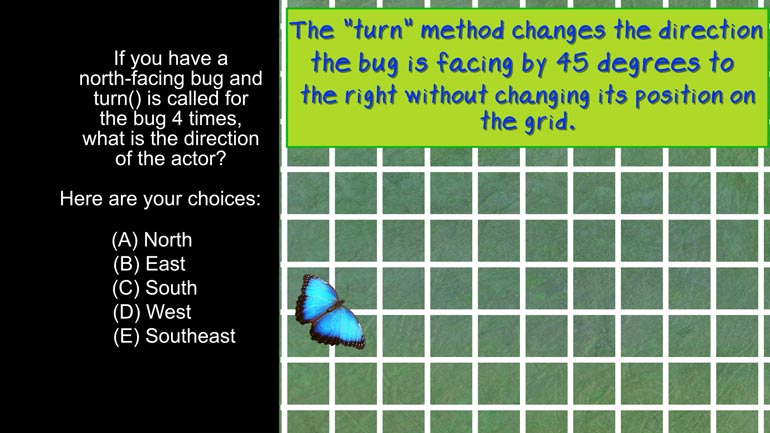ShmoopTube
Where Monty Python meets your 10th grade teacher.
Search Thousands of Shmoop Videos
Standard Algorithms Videos 20 videos
APCS: Standard Algorithms Drill 2, Problem 1. How much slower is InefficientSum than EfficientSum in the best case for an array of n elements?
In this computer science drill question, figure out which implementation will copy one array over to another.
AP Computer Science: Standard Algorithms Drill 3, Problem 3. What should go in "expression 1" to satisfy the conditional statement?
History of Technology 6: Introduction to Computers 29 Views
Share It!
Description:
What is a computer? A wonderful machine full of cat videos? Well...yes, but it's way more than that. Hit play to find out.
Transcript
- 00:02
At this point in the course, we've talked about almost every technology that has contributed
- 00:07
to the modern world as we know it.
- 00:09
Don't worry, we won't toot our own horns… [Saxophone playing]
- 00:12
…we have self-tooting ones for that now.
- 00:14
Seriously, we’ve been thorough.
Full Transcript
- 00:16
We've covered cars, airplanes, fossil fuels, industrial agriculture, nuclear weapons, telegraphs, [Pictures of cars, airplanes etc... in a tornado]
- 00:23
telephones, televisions, and modern medicine.
- 00:26
We've even covered microwaves, which made us crave massive amounts of popcorn. [Popcorn flies out of a microwave]
- 00:31
But there's one technology that defines our modern lives, perhaps more than all the others combined. [Mac computer starts up]
- 00:36
It's the reason we call this the Information Age, and the reason people watch about 500 [Cat video playing from YouTube]
- 00:42
years of YouTube videos on Facebook every day.
- 00:45
We’re not even exaggerated that math.
- 00:47
Seriously 500 years worth of hours are watched every day, and that number is only growing
- 00:53
bigger and bigger.
- 00:54
We're talking, of course, about computers. [Person using a MacBook]
- 00:55
Y'know…those little machines that let us do everything from typing up our homework
- 01:00
to watching GIFS of disgustingly cute dogs to watching Shmoop videos about computers. [Loop of a dog on a computer]
- 01:06
Whoa.
- 01:08
Computerception there huh?
- 01:09
But computers haven't always been the all-consuming must-have technology of their time. [A sledge hammer hits a computer monitor]
- 01:14
In their early history, computers were just giant, slow calculators, used only by governments [Calculator with legs]
- 01:19
and very patient researchers.
- 01:20
In 1946, the head of IBM predicted that the world would probably need about six computers [6 computers appear on the world]
- 01:28
Lucky for IBM that that didn’t prove to be the case.
- 01:31
For the record, at least 2 billion computers have been sold. [IBM stock chart goes up]
- 01:35
In this lesson, we're going to figure out how we went from computers the size of houses [Picture of an old computer]
- 01:40
to computers the size of our hand. [Someone holding a smartphone]
- 01:43
And then, perhaps even more importantly, we'll find out why computers have become the defining
- 01:47
technology of the twenty-first century.
- 01:49
Y'know. [Computer crying]
- 01:50
As of now.
- 01:51
Still waiting on those hoverboards…
- 01:52
Most inventions are the product of lots of people working on different ideas over a long [Pictures of people working in labs]
- 01:58
period of time…
- 02:00
But nobody could ever simplify computer history enough to give the credit to one person… [People appearing and holding on to one trophy]
- 02:04
Or even ten people.
- 02:06
Computers have a century-long history, and involve hundreds of researchers, engineers,
- 02:10
and mathematicians working independently.
- 02:13
It's even difficult to define what a computer is. [Kid scratching his head]
- 02:16
Seriously, go ahead and try it.
- 02:18
A computer is…
- 02:19
Um…a machine…full of cat videos?
- 02:21
And…celebrity tweets…?
- 02:22
Yeah it's hard right?
- 02:24
In the beginning of the nineteenth century…computers….were just people who worked computing numbers. [Man working in front of a computer]
- 02:28
Yup, anybody who did math all day was technically a computer.
- 02:32
Charles Babbage's "difference engine" was a calculator that could perform polynomial [Babbage stood next to his machine]
- 02:39
math, which sounds very impressive.
- 02:41
Alan Turing's machine was a device that printed symbols on paper according to the directions
- 02:46
it was given.
- 02:48
These days, we expect a computer to have a central processing unit, plenty of memory, [Man sat at a desk and the different components of a computer appear]
- 02:52
and the ability to stream whatever we want, whenever we want it…or else. [Man holds a gun to the computer]
- 02:57
For the purposes of this lesson, we're going to call all of that a computer….
- 03:01
A programmable, usually electronic device that can store, retrieve, and process data.
- 03:06
We’re also going to call it our friend because it will let us binge watch Parks and Recreation [Thought bubble appears above a man saying that he loves his computer]
- 03:11
after we’re done making this video without complaining.
- 03:14
And that's what real friends do.
Related Videos
GED Social Studies 1.1 Civics and Government
AP Computer Science 1.2 GridWorld Case Study and APIs. What is the direction of the actor?
AP Computer Science 1.4 Standard Algorithms. How many times will mystery be called for mystery(n) for n > 1?
AP Computer Science 2.3 Classes and Objects. Which of the following is correct implementation of the Country class?



